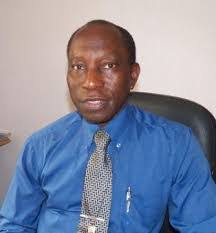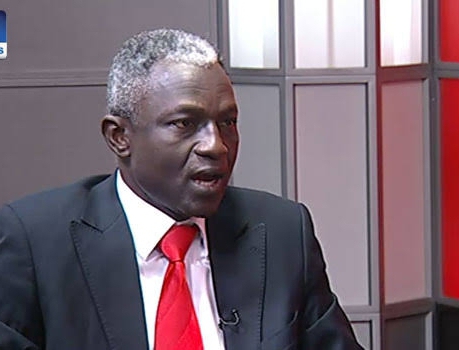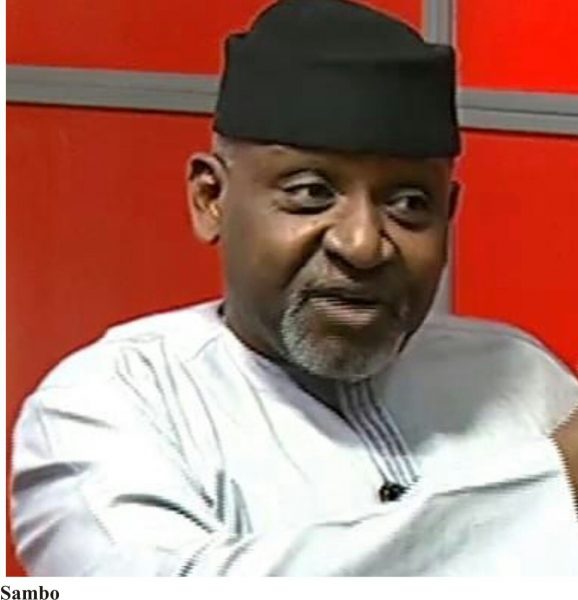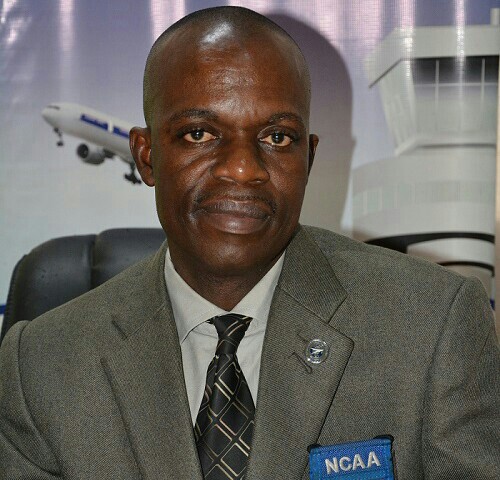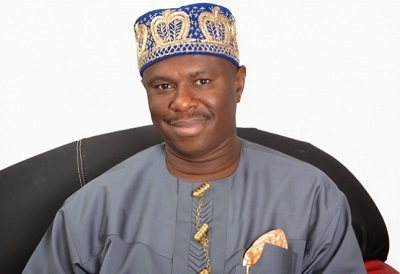Nigerian Airline Owners Interference Responsible For Dearth Of Local Operators
By Okuneye Moyosola
Chris Aligbe is an aviation consultant and Chief Executive Officer of Belujane Konzult. In this interview with MMS Plus newspaper, he bares his mind on the processes involved in the implementation of the national carrier and appraises the Aviation Minister’s performance in last four years. He also revealed how the interference in airline management by the owners has affected local airlines operations in the country.
Upon assumption of office, the Aviation Minister, Senator Hadi Sirika promised to do several things in the aviation industry. However, majority of these projects such as the national carrier and the MRO was not done. What can you say about this sir?
So much effort has been put in to actualize the national carrier, ‘Nigerian Air’. It had to go through processes. There are procedures for anything that you want to do in that area. They had to go through the Infrastructure Concession Regulatory Commission (ICRC) and there are steps that had to be followed. Firstly, a proposal has to be made and it must be advertised. That process was completed and they called for transaction advisers. This project including airport concession, MRO (Maintenance, repair, and overhaul) facility and aviation leasing company went through these processes. All these have been advertised in accordance with ICRC.
After that stage, a transaction adviser had to be appointed and they appointed one. The transaction advisers submitted their report. This phase is called the development stage. Their report had to go to the ICRC for approval; it was approved and was brought back to the Federal Executive Council (FEC) and accepted by FEC. This was followed by the procurement stage.
At the procurement stage, you have to start getting the investors who will invest in the project. With what has happened in our country in the past such as collapse of airlines and particularly what happened with Virgin Nigeria, the investors demanded for Nigerian government to begin the project before they can invest. Many people didn’t know that Virgin Nigeria was not a national carrier, it was an airline that was owned by three persons. It was owned by Richard Brownson, Former Nigerian President, Olusegun Obasanjo and one other person. Their ownership was hidden under UBA Capital and that is where they used to mask their ownership. However, because of Obasanjo’s position as at then, he made it as if it was a national carrier. It wasn’t a national carrier and the project failed.
Many airlines have failed in the past including Nigerian Airways which was government owned but liquidated. So, if you now tell an investor that you want to float an airline in this country and they should provide the money for you, what do you think the investor would say? Definitely he will say no. The investor will want to see the airline that you are floating before investing his money.
The airline that is going to be floated is not going to be fully owned by government. Only 5% is for the government. For a national carrier to be created there has to be a government interest but government interest must not be enough to control it. 5% is not enough for government to control it but it is enough to give it a sovereign cover. It is going to operate internationally and when it goes outside the country, it will be given that respect.
At that point in time, the minister asked government to provide some money to kick start it, after which he will sell it to the investors so that they can invest. If the investors don’t see that product, they will not put in their money. So many companies have promised to provide funds, such has the AFDB (African Development Bank), two airlines and other companies also indicated interest to come in.
They debated it in the Federal Executive Council (FEC) and it had so much support but there were few individuals who complained that there was no money and that the project should be move to 2019. The Central Bank of Nigeria (CBN) also said they could provide the money and the money might not necessarily be removed from the budget because there is an Aviation Development Fund. However, President in his own wisdom said it should be moved to 2019 and that’s how it stopped.
So it is not a failure. Sirika had said that the national carrier will fly on the 19th of December 2018 and he was at the Federal Executive Council when they took this decision. Some people think that the project has been cancelled but it has not. The project is Buhari’s project even before ever he was sworn in. Sirika has pursued it and followed due process. We have gone through the developmental stage, we are now at the procurement stage. I am sure that after the swearing in, this procurement stage will come on stream.
In terms of airport concessioning, he hasn’t pushed it to the point where he probably would have loved to push it to but he has gone through the developmental stage, they are now almost at the procurement stage. They have advertised and gotten reports from transaction advisers but it has not been concluded. They have not gone through the ICRC and so they haven’t completed the development stage.
Nigerian Air is ahead of the airport concessioning but all of them have been advertised and the processes have begun. Another thing to consider is that the processes are not only in his hands, there are so many external factors that affect it.
Our airspace is safer today than ever and nobody is really complaining about the safety of Nigerian airspace. Many years ago, there were complaints about it. In fact, Nigerian airspace was tagged as one of the most dangerous airspace in the world but now we can beat our chest to say that has changed.
Before we had only two certified International Civil Aviation Organization (ICAO) inspectors but today there are five of them in NCAA (Nigerian Civil Aviation Authority) that ICAO can call up to carry out duties in other countries. There have been cases of a country having inspectors from different agencies but Nigeria is the first to have such amount of inspectors from one agency which is NCAA. So, in terms of airworthiness, we have the people, we have the manpower.
We have also held 3 international ICAO conferences here in Nigeria, the one that has never been held outside Montreal. Today, Nigeria is the chair of Banjul Accord Group Aviation Safety Oversight Organization (BAGASOO). It is a security and safety organization and the Director General of NCAA is the chair person. There is no doubt that we have advanced but there are still major challenges.
The main challenge is the airline subsector and airport sector. Our airlines have not been doing well. They come in and before you know they go again. As at now, Air Peace is expanding. For me as a Nigerian, I am praying that Air peace succeeds beyond imagination so that it our country will not have the permanent image of not being able to run any airline.
Nigeria is known for not being able to run any airline successfully. National Carrier was liquidated by government for insurance purposes. They will tell you it is corruption but if you ask them who is responsible for the corruption, they wouldn’t say anything. They are the people who appointed those that are there because they own it. That is why we are saying that the national carrier should not be owned by government again. Private sector investors should be allowed to control the airline and when this is done, we would succeed. We need a national carrier because all African airlines have national carriers. British Airways was a national carrier until they sold it. When people say that having a national carrier is an old idea they really don’t know what they are talking about. There are few airlines that started as a private airline and grew big. It is only Virgin and Cathay Pacific. How large has Virgin grown compared to British Airways now?
Talking about the MRO (maintenance, repair and overhaul) facility that the Minister promised to set up, it has also been advertised but nothing has happened on that. People have said that if we don’t have an MRO, the airlines will never do well. The truth is that no MRO will come into the country without the market. You can’t establish a maintenance organization if you don’t have the market. What will you maintain if you don’t have airlines?
Nigeria must provide the market first. Air Peace is large enough if there is a good MRO but it’s not large enough to support fully an MRO. However, if you have Air Peace, Nigerian Air and another airline that will have over 100 fleets of aircrafts put together, then you can now start an MRO. If there is no market, nobody will come to invest. Out of the 56 MRO facilities globally, only two of them started without an airline. All others started with an airline before they grew big and started maintaining aircrafts from other organization. Some of them later detached and became a full business on their own. An example is Lufthansa Technique. It started as maintenance organization for Lufthansa, and then when it grew big, it detached and became an organization. Up till today, it still maintains for Lufthansa. These are some of the things that the aviation sector needs to understand.
The Minister has not done everything but he has gone a long way to do things more transparently than other people in the past. He is focused and he is passionate about what he wants to do. I don’t know what Buhari’s next dispensation would be but if the president does with Sirika what he did with Emefiele, then the aviation sector would be in a position to achieve more on a faster note.
The Minister should continue to meet with stakeholders. There must be stakeholders’ involvement in a manner that these stakeholders will buy into his plans. He should let people know about what he is doing because if he keeps quiet, wrong information will come in.
There is so much to be done because our industry is far from where it should be. It’s been decades and everything cannot be solved in just one day. But there are things that will ignite development and these are national carrier and airport concession. The next minister should focus on these two areas and the industry will grow.
Why do you think that most of our local airlines do not survive for long?
There are some external challenges such as the operational environment. The operational environment is not too easy for them, as well as so many taxes and prices of fuel but the airlines themselves are also a problem to themselves.
There is this owner-manager syndrome among airlines. They own it and so they want to manage it themselves. They want to take all the decisions even when they do not have all that it takes to manage it. You can own and get good managers to manage it for you. But owners of airlines will tell you that they can invest a lot of money and look the over way. Nobody is saying that you should look the other way but you should be in a position to look at it, and give the terms and guidelines to those who will manage it for you. You tell the manager about what you intend to achieve, you pull back and allow the manager who knows how to do the work manage it. Don’t make it a family business. For example, Emirates is owned by Emirati government. All the managers there are hired. No Emirati national is managing Emirates, they are all foreigners. The same thing goes for Qatar airways. Qatar Airways is number one in the world in terms of global standing. They are the owners but they employ managers and if you don’t do what you are told to do, they will kick you out.
There is also no sufficient knowledge of airline management. Most airlines are not exposed to global industry practices and aero politics I don’t think any of them is a member of African Airline Association (AFRAA). It is AFRAA that makes all the policies driving African airline development. Many of the airlines are complaining about the Open Skies for Africa but it has been there long ago and it is at AFRAA that these things are discussed. It is AFRAA that represent African airlines at ICAO and International Air Transport Association (IATA). Our airlines have not gotten membership with IATA. For financing at AFDB, it is AFRAA that also represents African airlines. It is the voice of African Airlines at the global level and if you are not a member, you cannot understand the current trends and make contributions. Airlines in Nigeria have a very poor understanding of what association is all about and so they have not been serious about it. It is not about what you read, it’s about been part of the decision makers. If these airlines do not take care of these deficiencies, they would never grow. The issue of low competencies and capacities is also another problem that is affecting our airlines.
What can be done to reduce the price of aviation fuel?
The high price of aviation fuel cannot be resolved unless we start refining in our country. This is a challenge that is beyond the airlines. The airlines cannot resolve it. If the airports are not efficient, the airlines will not be efficient too. Sometimes inefficiency might not be the fault of the airline, it might be as a result of poor facilities at the airports. We must separate external factors from internal factors.


